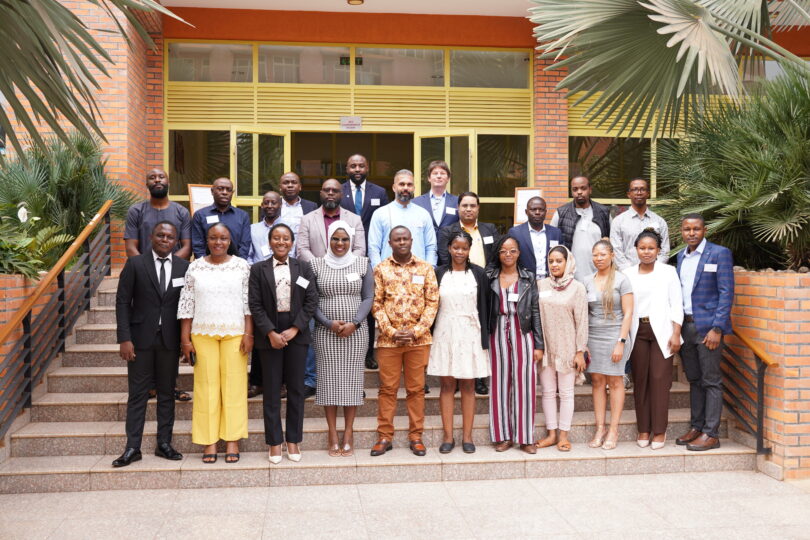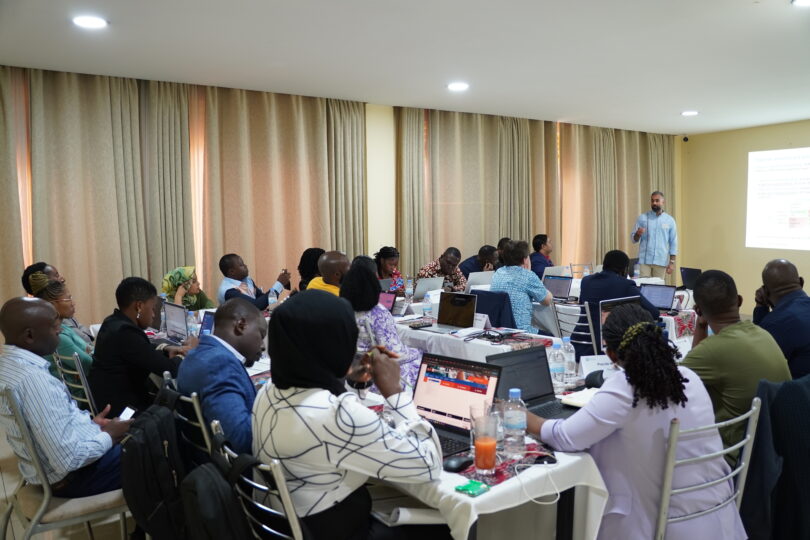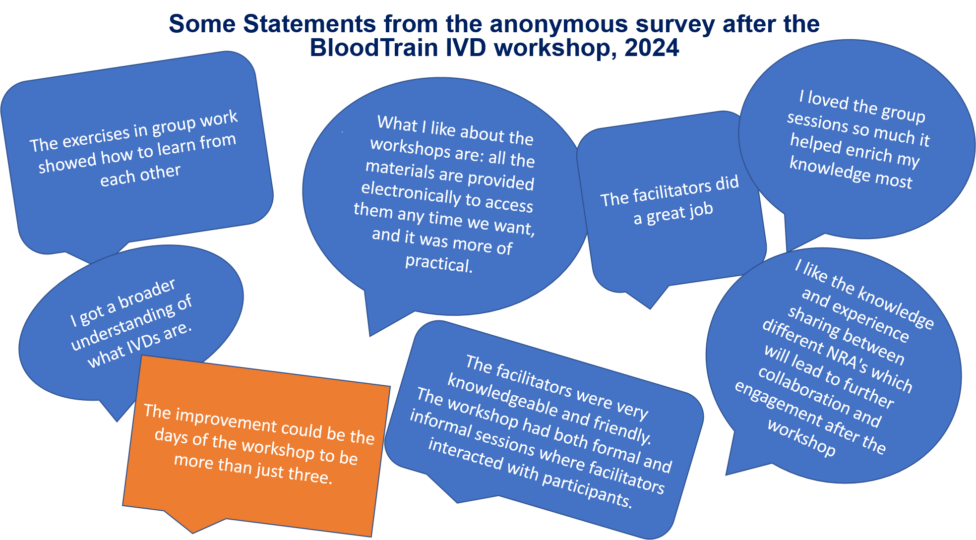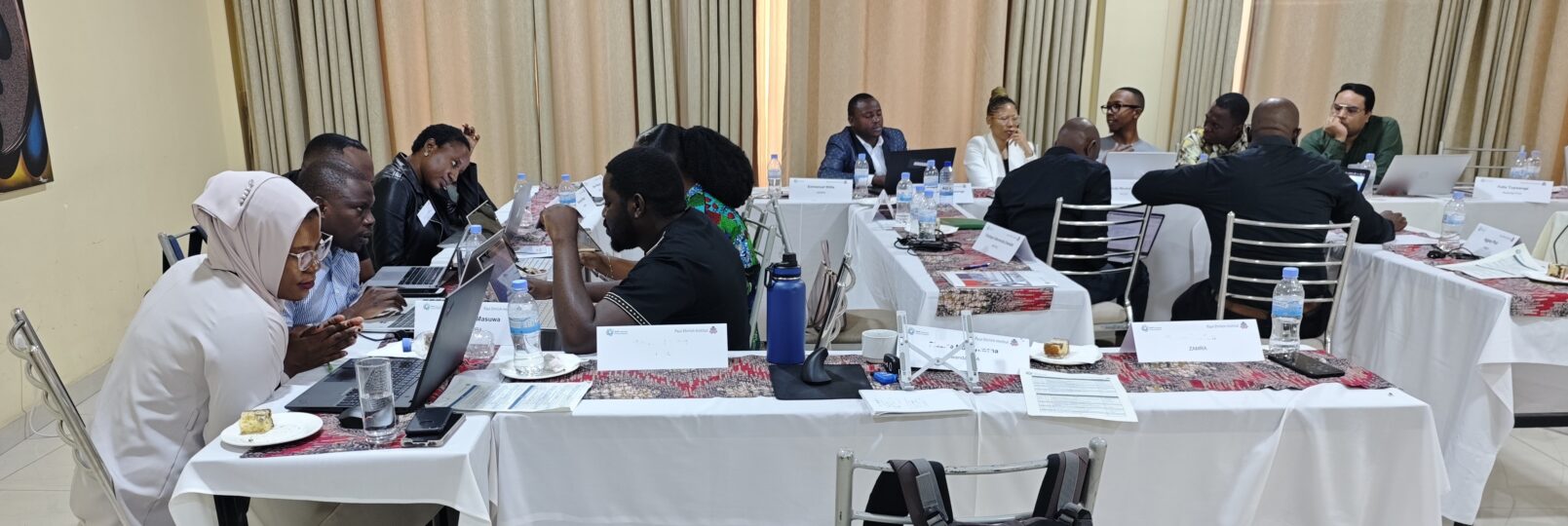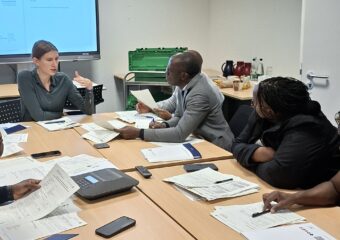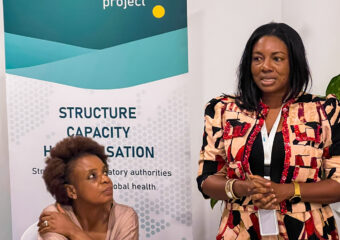Ensuring Blood and Patient Safety: BloodTrain Workshop Deepens Knowledge of In Vitro Diagnostics
BloodTrain Next Generation held its first advanced workshop on technical file assessment of in vitro diagnostic medical devices in the blood sector. The workshop focused on hands-on exercises where participants reviewed manufacturers’ technical documentation for safety and performance requirements. In addition, they shared experiences made with challenges and solutions across countries.
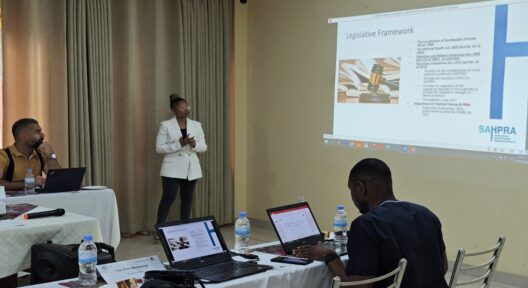
For three days, 21 regulators deepened their expertise in the regulatory assessment of in vitro diagnostic medical devices (IVD). The aim was to strengthen their monitoring and authorisation in their respective National Regulatory Authority (NRA) institutions. NRA-professionals from 14 African countries took part in the workshop in Rwanda. This training was a follow-up to BloodTrain’s virtual basic seminar on the same topic, held in 2021 (seminar report, page 19, in German only). IVDs are medical devices that can be used to analyse samples from the human body such as saliva, urine or blood – for certain pathogens or factors. As they are of great importance for the safety of the blood supply, the BloodTrain project has been supporting its partners in building up expertise and a functioning regulatory system for IVD since 2019.
Forum for sharing best practice
In addition to the five BloodTrain partner countries (see project-details), the GHPP BloodTrain Next Generation project invited nine other regulatory authorities to participate in the training. ʹIn contrast to the European network that has grown over the years, African regulators still have few opportunities to exchange detailed information on specific issues and challenges in the field of IVD across national bordersʹ, says Dr Jens Reinhardt, head of the BloodTrain Next Generation project at the Paul-Ehrlich-Institut. The workshop therefore focused on networking, learning from each other, and sharing best practices. This approach was well received by the participants. After all, regulatory oversight has to keep pace with the constant development of new medical devices. For example, this can be in response to the emergence of new infectious agents or the formation of subgroups. However, it could also concern more innovative testing methods coming onto the market. ʹIncreased cooperation, or even mutual recognition of assessment results can be of great benefit here, allowing countries to make use of their resources and to focus on those IVD that are most relevant to their populations, and which are not yet officially authorisedʹ, says Dr Reinhardt.
Learning by doing
Besides in-depth technical presentations, the workshop focused on hands-on activities. In preparation, the BloodTrain team compiled technical documentation that manufacturers submit to the authorities for review as mock examples for the training. In small groups, the participants worked on these documents and were able to apply and deepen their knowledge. Each group was led by a member of the BloodTrain team or invited experts. One team then presented how they would assess the manufacturer’s simulated application. The other groups commented on this and discussed where they came to different conclusions and which other aspects they considered to be critical. ʹWhat information the assessor needs to look for in the manufacturer’s application, how to interpret the data, what deviations from measured values are still acceptable, whether climatic conditions need to be taken into account – all this varies from application to application and requires practical experienceʹ, says Dr Reinhardt. During the workshop, his team also gave valuable tips on how to find solutions and which international references to consult. The regulation of blood IVD follows the same principles as that of all medical devices and can therefore be applied to all of them.
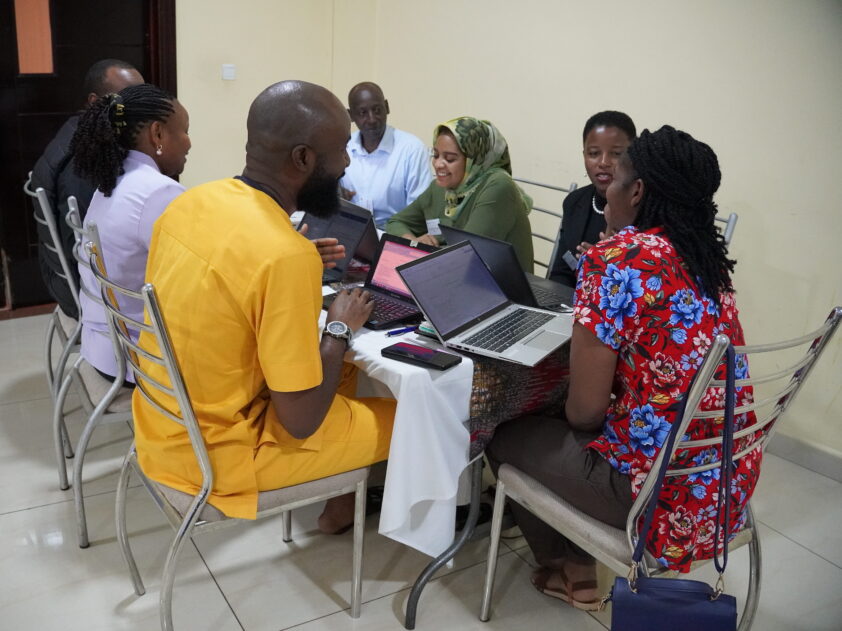
Engagement and positive feedback from participants
For the advanced course, participants were asked to review the materials and recorded presentations from the 2021 BloodTrain basic course. The course materials and recordings are always available to registered users on the project’s digital learning platform, which was highlighted as very helpful by participants. Feedback on the workshop was also very positive: ʹSuch training workshops are interesting because they allow us to read and know more about the subject and give us the energy to do more on our side to be competent experts.ʹ Another comment praised the group work: ʹI loved the group sessions so much, it helped to enrich my knowledge most.ʹ
In retrospect, Dr Reinhardt says, ʹI was very pleased with the commitment of the participants in this workshop, from their willingness to self-study in preparation to the lively discussions and palpable enthusiasm for cross-national professional exchange. This is a wonderful foundation to build on.ʹ
Only reliable tests provide reliable results – and therefore safety in the blood supply
Various IVDs are used in the processing of blood or blood components, e.g. to determine blood groups or to test for transfusion transmissible infectious agents. Blood transfusions carry high risks to both individuals and public health. For this reason, most IVDs used in the blood sector are classified in the highest risk class ‘D’. This means the most stringent regulatory controls must be applied to IVD to test blood for transfusion. This is to ensure the reliability of the test results, which are of high importance for individual patients and public health. For instance, the tests must have high sensitivity, which means they must reliably deliver a positive result for samples with pathogens and high specificity. At the same time, they must also reliably give a negative result for samples without pathogens. National regulatory authorities are responsible for approving and monitoring the use of IVD in the blood sector to ensure that patients have access to safe blood and blood products.
Workshop Facts:
Title: Assessment of Blood-related IVD Training Workshop
Date: 30 July – 01 August 2024
Place: Kigali, Rwanda
Organised by: Paul-Ehrlich-Institut/ BloodTrain Next Generation
Target Group: Regulators for Medical Devices & IVD
Presenting & Moderating Experts: Dr Goran Abdurrahman (Notified Body TüV Rheinland) & BloodTrain Next Generation Team

